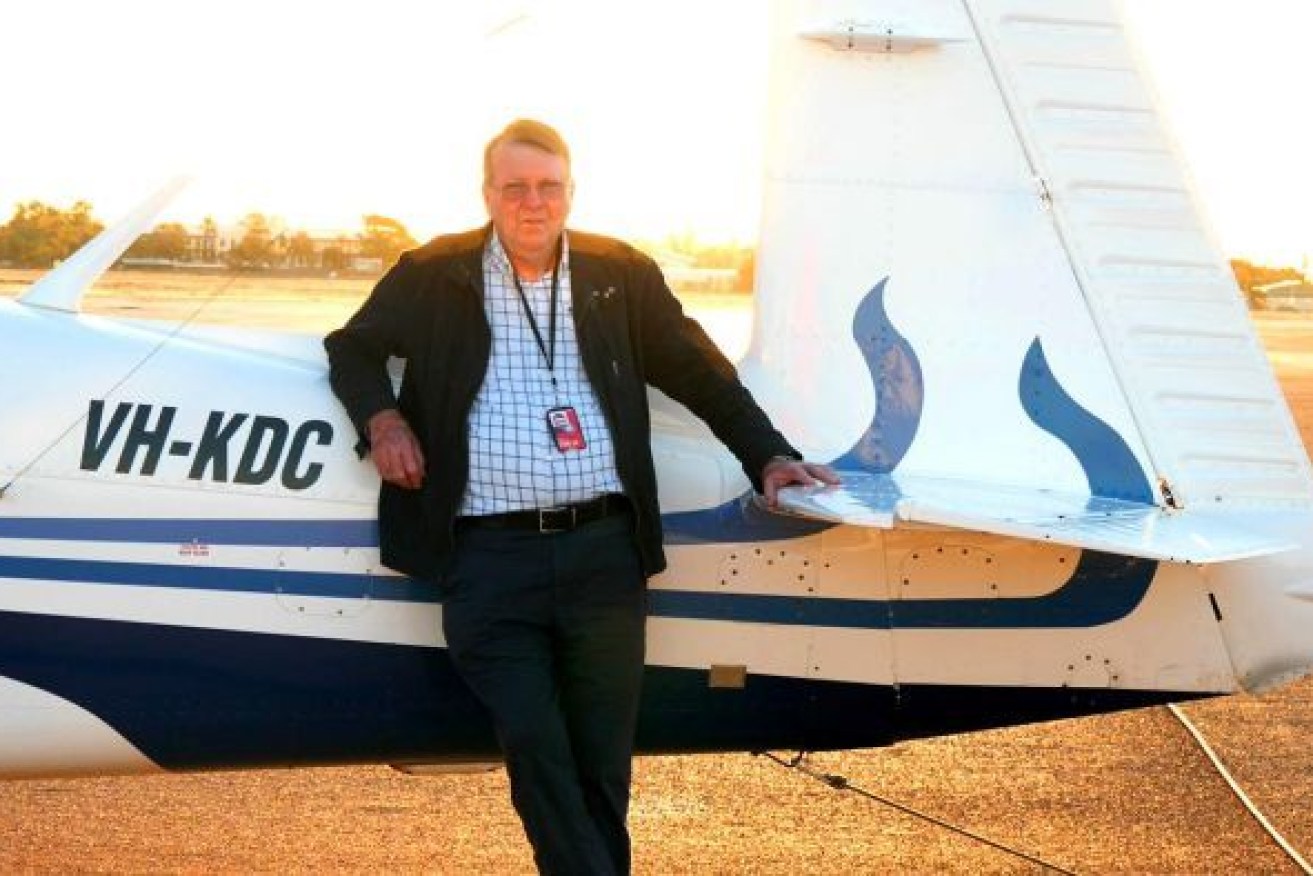Vision splendid: The man whose eyesight mission has taken him to moon and back
A flying optometrist, who has spent more than three decades treating patients across western Queensland, fears eye diseases will go untreated in the region’s ageing population once he calls it quits.

Flying optometrist Geoffrey Fitzpatrick at the Longreach Airport after flying his Mooney 2005 from the Sunshine Coast. (Photo: ABC)
Geoffrey Fitzpatrick, 71, is approaching retirement after clocking up enough air miles to fly to the moon and back.
Fitzpatrick has been flying back and forth from the Sunshine Coast to the state’s central-west since 1988.
But with an ageing population and a lack of optometry services in the Outback, he is worried vulnerable people could be left in the dark.
“I feel obliged to keep providing the service,” Fitzpatrick said. “There used to be three or four, or even five, other optometrists travelling around out here. Now I’m the only one.
“While I’m fit and healthy and can pass the medical for my pilot licence I might as well keep going.”
Born to fly
As the son of an RAAF World War II pilot, Fitzpatrick always wanted to fly.
He earned his pilot licence in 1983 and said, apart from the addition of GPS, not much had changed in the air since.
But Fitzpatrick’s optometry practice, and Longreach itself, had been transformed over the years thanks to advances in technology and the conveniences of modern life.
“We’ve got three computers doing different jobs, we’ve got retinal cameras, we’ve got auto refractors and visual field screen machines that can detect the early signs of glaucoma,” he said.
“A thing that’s changed in Longreach is people walking around with two cardboard cups of coffee … you didn’t see that 30 years ago.”
Knock-on effects for community
Longreach stalwart Mary Bell has known Fitzpatrick for more than 30 years.
The Meals on Wheels and Vinnies volunteer is being treated for macular degeneration. “If he sees something wrong, he’ll soon tell you and get you to somebody who can fix you up,” Bell said.
In April, non-urgent clinical services including ophthalmology were suspended after directions from National Cabinet due to the coronavirus pandemic. Ophthalmology specialists are due to return to the Central West Hospital and Health Service in November.
In the meantime, Bell had been forced to travel to Brisbane for specialist treatment and was worried that may become the new normal. “Well, you either have to go away or your eyes would deteriorate — that’s about it,” she said.
Services like optometry were privately funded, but for Fitzpatrick his time in the west was not about the bottom line.
“I must say it’s not particularly lucrative — it’s taken me 30 years to actually own an aeroplane,” he said.
“But being able to combine the love of flying and looking after the friendly western [Queensland] population should have its own attraction, so hopefully I will be able to find someone [as a replacement] once I retire.”
Early detection critical to save sight
An ageing population and harsh UV light in the outback means the need for routine eye check-ups is essential.
Detecting eye diseases early, like macular degeneration and diabetes, is critical to saving sight. But travelling hundreds of kilometres for appointments is not practical for many in the community.
Former president of the Rural Doctors Association Queensland Clare Walker warned that, without the specialised skills of an optometrist in the region, treatable eye conditions could go undiagnosed.
“If you catch bleeding from diabetic complications early you can retain vision by treating it,” Walker said.
“Without that early detection some people go needlessly blind from diabetes.
“Many people who need the optometry services are elderly and can’t travel, so the services [Fitzpatrick] provides have been absolutely invaluable.”
Fitzpatrick had observed the demand increase during his career. Originally he visited Longreach six times a year, then eight, and now he makes 12 trips a year to meet the needs of his patients.
“When I graduated we hardly saw anybody over 80 years old,” Fitzpatrick said. “Now we’re seeing lots of patients well over 80 and quite a few in their 90s — some of them are quite healthy of course, but some of them aren’t.
“People over 80 are more prone to having macular degeneration, which is becoming a serious problem.
“It gets difficult for them to look after themselves, so that’s one of the things we make an effort to detect early.”
Fitzpatrick hoped someone will take up the cause once he has gone.
– ABC / Craig Fitzsimmons












